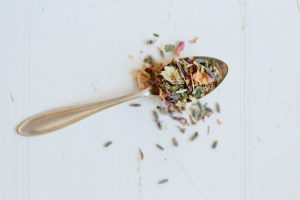The Naturopathic Co.

You're using an outdated browser. Please upgrade your browser to improve your experience.
Menopause generally happens by age 52, however many women experience symptoms throughout peri-menopause due to the fluctuation of reproductive hormones.
During this time, women may experience period cycles become longer, shorter, or irregular. Bleeding may become lighter, or unpredictable, until eventually your ovaries stop releasing eggs.
Some of the more common menopausal symptoms are: hot flushes, night sweats, irritability, fatigue, and difficulty sleeping.
Declining oestrogen levels are associated with many health disorders. With dietary and lifestyle modifications, we can reduce the likelihood of developing chronic health disease in the post-menopausal period, as well as reduce severity of menopausal symptoms.
Research has shown that a Western style diet that includes high energy intake, excess carbohydrates and trans- and saturated fats can be associated with an earlier age of menopause, and a higher severity of menopausal symptoms.
Adopting general wholefood dietary principles including high intake of fruit, vegetables, whole grains, nuts, seeds and plant protein will support the individual during the menopausal transition, and provide the specific macro- and micronutrients required for healthy aging in the post-menopausal period. Encourage optimal digestive processes with fibre-rich foods and support the skeletal system by increasing sources of calcium and other bone nutrients.
Specific foods that have demonstrated therapeutic effects on menopausal symptoms such as phyto-oestrogens and omega-3 polyunsaturated fatty acids are encouraged.
Phyto-oestrogens are commonly used for the relief of menopausal symptoms, as they have been shown specifically to reduce the symptoms. Phyto-oestrogens are plant compounds with oestrogen-like properties and include three major classes: isoflavones (found in soybeans); lignans (a constituent of dietary fibre e.g. flaxseeds) and coumestans (found in sprouted beans).
The chemical structures of isoflavones and lignans are similar to that of oestradiol, and these compounds appear to exert an oestrogenic or anti-oestrogenic effect depending on the circulating oestrogen level. This means that these compounds will either help to clear oestrogen or help to boost it, depending on what is required according to oestrogen levels in the body.
Flaxseed can reduce hot flash frequency and intensity. A comprehensive meta-analysis of 19 clinical trials found that soy isoflavones were significantly more effective than placebo in reducing both the frequency and severity of hot flashes, although effects may vary between individuals due to variations in gut microbiota which are required to convert soy isoflavones into more biologically active metabolites.
From a naturopathic perspective, flaxseed is best consumed fresh from flaxseeds that are freshly crushed and have been stored appropriately, due to the unstable nature of the polyunsaturated fatty acids.
Increased soy consumption may exert beneficial effects on bone health by inhibiting bone resorption and stimulating bone formation and population, and studies indicate that the incidence of osteoporosis is lower in countries with higher soy consumption. Soybeans have a high protein content (approximately 38%) and contain a good quantity of polyunsaturated fats.
Women could consider supplementation of calcium, vitamin B complex, essential fatty acids, probiotics, vitamin A, vitamin C, vitamin D, vitamin E, and zinc throughout the menopause transition (and beyond), depending what their requirements are.
Peri- and postmenopausal women with greater levels of physical activity report improvements in mental and physical aspects of quality of life.
Physical activity is important for maintenance of healthy body composition in menopausal women, and for the prevention of osteoporosis.
Regular exercise can increase and sustain bone density and decrease the risk of fracture.
Three specific types of exercise are helpful for prevention of osteoporosis and maintaining a healthy body composition: high-impact exercise (e.g. jogging, running and brisk walking) to improve bone density, weight or resistance training to strengthen and increase muscle mass, and stretching and balancing to improve mobility and balance, and minimise falls.
Mind-body interventions including breathing and relaxation techniques, can be beneficial for alleviating menopausal symptoms. Mindfulness Based Stress Reduction (MBSR) techniques have also been shown to improve sleep quality, decrease anxiety and stress, and improve quality of life.
Furthermore these interventions may reduce menopausal symptoms through the positive effects they can exert on mood, stress and physical health, which have been associated with hot flash and night sweat severity.
***
As naturopaths, we approach a patient who is transitioning through menopause, by focusing on three key areas: symptomatic support, treatment for any disease processes present, and prevention of any future disease processes.
Make a time to speak to your naturopath, who can devise a tailored treatment plan to assist with transition to menopause.
Yvette is a qualified Melbourne-based Naturopath and Nutritionist, MINDD Practitioner, member of the Naturopaths and Herbalists Association of Australia, and Complementary Medicine Association. Yvette specialises in the treatment of conditions commonly affecting women and children, with a key interest in children’s digestive and neurological conditions, as well as women’s hormonal concerns, digestive issues, fatigue, anxiety, and skin concerns. Yvette consults in South Yarra, Melbourne, as well as Australia-wide via skype/zoom/phone.
The Naturopathic Co. Melbourne Naturopath 2022
Comments are closed.